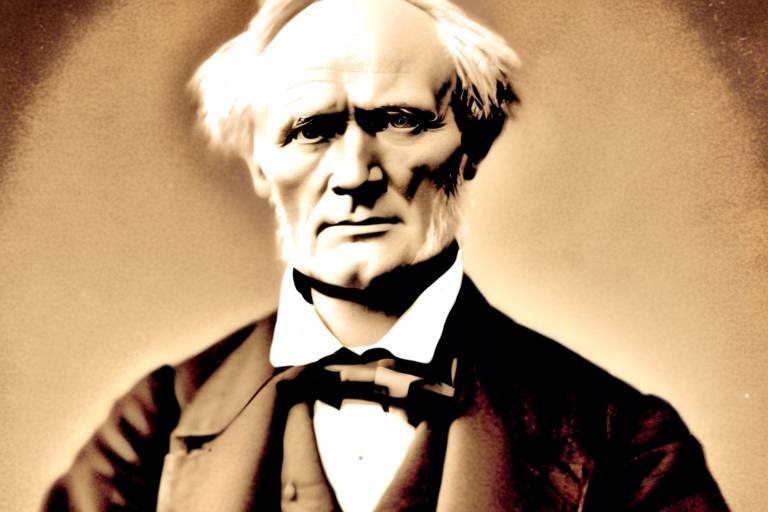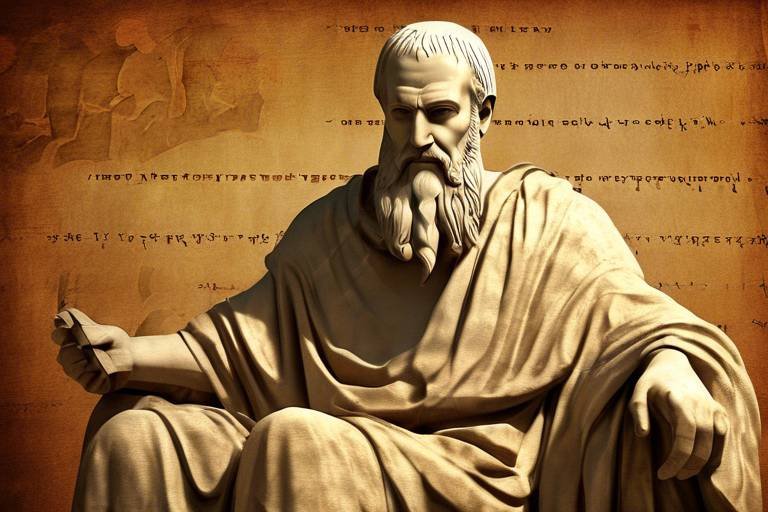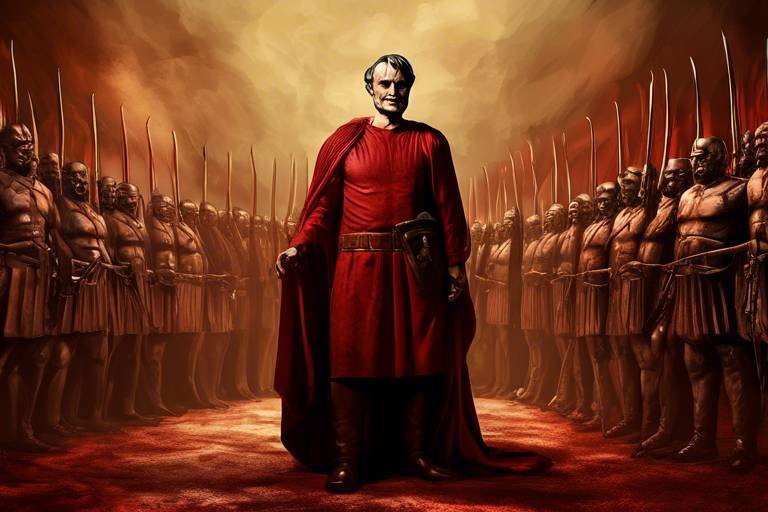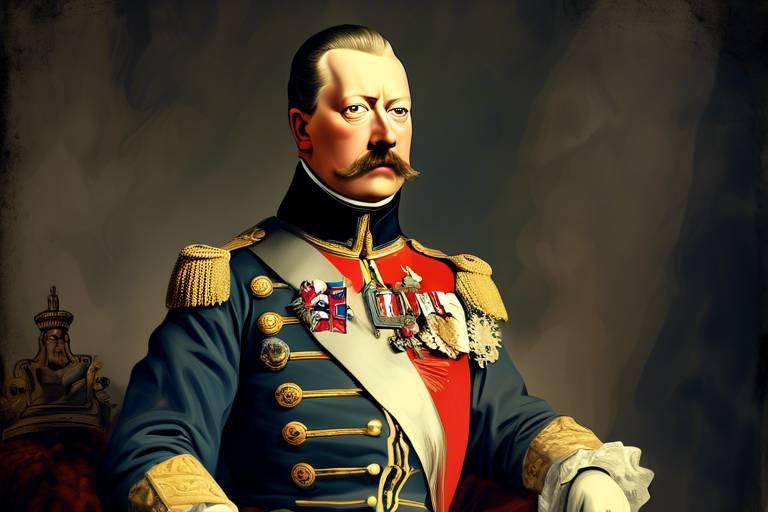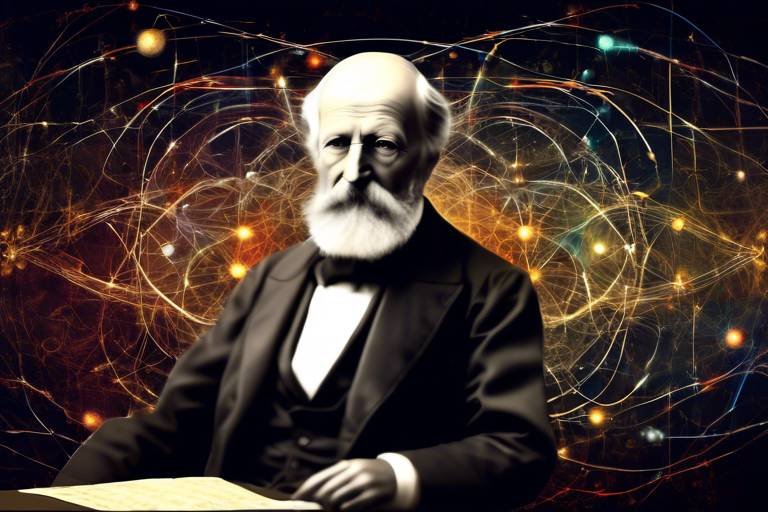Faraday: The Pioneer of Electricity
Michael Faraday, a British scientist, is renowned as the pioneer of electricity due to his groundbreaking contributions to the field of electromagnetism. His innovative experiments and discoveries have not only shaped the modern understanding of electricity but have also influenced generations of scientists worldwide.

Early Life and Education
Michael Faraday, a British scientist, made significant contributions to the field of electricity and magnetism. His experiments and discoveries laid the foundation for modern electromagnetic technology and influenced generations of scientists.
Faraday's journey to becoming a renowned scientist was shaped by his humble beginnings and early fascination with science. Born in 1791 in a poor family in London, Faraday received only basic education and had to work as an errand boy at a bookshop. However, his thirst for knowledge and passion for experimentation led him to attend public lectures on science, sparking his interest in the natural world.
Despite lacking formal education, Faraday's determination and curiosity drove him to teach himself various scientific concepts. His relentless pursuit of knowledge eventually caught the attention of renowned chemist Sir Humphry Davy, who hired Faraday as his assistant at the Royal Institution. This opportunity marked the beginning of Faraday's remarkable career in science.
Faraday's hands-on approach to learning and his willingness to question established theories set him apart as a self-taught scientist with a unique perspective. His early experiences and unconventional path to success exemplify the power of passion and perseverance in overcoming obstacles and achieving greatness.

Faraday's Experiments with Electromagnetism
Michael Faraday, a British scientist, delved into the realm of electromagnetism with a fervor that would change the course of scientific history. His experiments in this field were not only groundbreaking but also laid the groundwork for modern electromagnetic technology, sparking a revolution that continues to influence generations of scientists.
One of Faraday's most notable experiments was his exploration of electromagnetic induction, where he discovered the phenomenon of generating electricity through the movement of a magnetic field. This pivotal discovery paved the way for the development of electric generators and motors, revolutionizing the way we harness and utilize electrical energy.
Furthermore, Faraday's investigations into the principles of electrochemistry led to significant advancements in understanding the relationship between electricity and chemical reactions. His work on electrolysis not only revolutionized the field of chemistry but also provided crucial insights into the fundamental nature of matter and energy.
Faraday's experiments with electromagnetism not only expanded our understanding of the interplay between electricity and magnetism but also highlighted the interconnectedness of these two fundamental forces in nature. His meticulous observations and innovative approach to scientific inquiry continue to inspire researchers and engineers to push the boundaries of what is possible in the realm of electromagnetic technology.

Faraday's Laws of Electrolysis
Faraday's Laws of Electrolysis are fundamental principles that revolutionized the understanding of chemical reactions involving electricity. Michael Faraday's groundbreaking work in this area laid the groundwork for the field of electrochemistry and has had a lasting impact on modern science.
One of Faraday's key discoveries was his first law of electrolysis, which states that the amount of chemical change produced by a current passing through an electrolyte is proportional to the quantity of electricity passed through it. This law provided a quantitative relationship between the amount of substance transformed in an electrolytic reaction and the electric charge that passed through the electrolyte.
Furthermore, Faraday's second law of electrolysis established that the amounts of different elements deposited or liberated during electrolysis are proportional to their chemical equivalent weights. This law helped in determining the atomic weights of elements and contributed significantly to the development of the periodic table of elements.
Faraday's laws of electrolysis not only provided a deeper understanding of the relationship between electricity and chemical reactions but also paved the way for advancements in various scientific fields. These laws continue to be applied in modern electrochemical processes, such as electroplating, electrolytic refining, and energy storage technologies like batteries.

Faraday's Contributions to Physics
Michael Faraday, often referred to as the father of electromagnetism, made remarkable contributions to the field of physics that continue to influence modern science. His pioneering work delved into the fundamental nature of electricity, magnetism, and light, revolutionizing our understanding of these phenomena.
One of Faraday's most significant contributions to physics was his experiments on electromagnetic induction. Through his groundbreaking work, he demonstrated the relationship between electricity and magnetism, laying the foundation for the development of electric generators and transformers that power our modern world.
Faraday's research also extended to the study of the nature of light. His investigations into the behavior of light in magnetic fields led to the discovery of the Faraday effect, a phenomenon that describes the rotation of the plane of polarized light in the presence of a magnetic field.
Furthermore, Faraday's exploration of the principles of electromagnetic fields paved the way for the development of Maxwell's equations, which unified the theories of electricity and magnetism. His insights into the interconnectedness of these forces revolutionized the field of physics and set the stage for future advancements in the field.
In addition to his work on electromagnetism and light, Faraday made significant contributions to the understanding of the laws of electrochemistry. His experiments on electrolysis led to the formulation of Faraday's laws, which quantitatively describe the relationship between the amount of substance produced or consumed in an electrolytic reaction and the amount of electricity passed through the system.
Faraday's contributions to physics not only advanced our understanding of the fundamental forces of nature but also laid the groundwork for the development of modern technologies. His innovative experiments and theoretical insights continue to inspire scientists and engineers to push the boundaries of what is possible in the realm of physics and beyond.

Faraday's Influence on Modern Science
Michael Faraday's influence on modern science is undeniable, as his groundbreaking discoveries in the field of electricity and magnetism continue to shape the technological landscape of today. Faraday's work on electromagnetic induction laid the foundation for the development of electric power generation, which is essential for our daily lives. His experiments with electromagnetism not only led to the understanding of the relationship between electricity and magnetism but also paved the way for the development of electronic devices that we rely on in the modern world.
Furthermore, Faraday's contributions to the field of physics extended beyond electromagnetism. His investigations into the nature of electricity, magnetism, and light provided valuable insights that have influenced various branches of science. The principles he established have been instrumental in the advancement of fields such as quantum mechanics and optics, demonstrating the far-reaching impact of his work.
In addition to his scientific discoveries, Faraday's emphasis on the importance of experimentation and observation has shaped the scientific method itself. His meticulous approach to research and his dedication to empirical evidence set a standard for future generations of scientists to follow. Faraday's legacy as a pioneer of experimental science continues to inspire researchers to push the boundaries of knowledge and explore new frontiers in scientific inquiry.

Legacy of Michael Faraday
Michael Faraday's legacy as a pioneer of electricity and magnetism is profound and far-reaching. His groundbreaking discoveries and innovative experiments have left an indelible mark on the field of science, shaping the way we understand and harness electromagnetic forces.
One of Faraday's most enduring legacies is the Faraday effect, a phenomenon in physics and chemistry that describes the interaction between light and magnetic fields. This effect has been instrumental in various scientific applications, from optical technologies to material analysis, highlighting Faraday's enduring influence on diverse disciplines.
Furthermore, Faraday's work laid the foundation for modern electromagnetic technology, paving the way for crucial advancements in electric power generation, communication systems, and electronic devices. His principles of electromagnetic induction and electrochemistry continue to underpin key technologies that drive our interconnected world today.
Faraday's legacy extends beyond his scientific contributions; his passion for education and public engagement has inspired generations of scientists and science enthusiasts. His emphasis on hands-on experimentation and practical demonstrations has shaped science education methodologies, emphasizing the importance of curiosity, observation, and critical thinking.
In recognition of his immense contributions to science, numerous honors and awards have been bestowed upon Faraday, both during his lifetime and posthumously. His name is synonymous with innovation, discovery, and the relentless pursuit of knowledge, serving as a beacon for aspiring scientists and researchers worldwide.

Faraday's Honors and Recognition
Michael Faraday, despite his lack of formal education, made groundbreaking contributions to the field of electricity and magnetism, earning him numerous honors and recognition throughout his lifetime and beyond. His work revolutionized the understanding of electromagnetism and laid the foundation for modern technological advancements.
One of the most notable honors bestowed upon Faraday was his appointment as a Fellow of the Royal Society in 1824, recognizing his significant scientific achievements. This prestigious recognition marked the beginning of a series of accolades that would highlight Faraday's exceptional contributions to science.
In 1825, Faraday received the prestigious Royal Medal from the Royal Society for his pioneering work in chemistry and physics. This award further solidified his reputation as a leading figure in the scientific community and propelled him to international acclaim.
Faraday's dedication to scientific research and his innovative experiments with electricity and magnetism led to his appointment as the first Fullerian Professor of Chemistry at the Royal Institution in 1833. This position not only recognized his expertise in the field but also provided him with a platform to continue his groundbreaking research.
Throughout his career, Faraday received numerous awards and honors, including the Copley Medal in 1832 and again in 1838 for his exceptional contributions to science. His work on electromagnetic induction and electrolysis solidified his legacy as a pioneer in the field of electricity and magnetism.
Faraday's influence extended far beyond his lifetime, with his name immortalized in various scientific concepts and phenomena. The unit of capacitance, the farad, was named in his honor, highlighting his enduring legacy in the field of electromagnetism.
Even after his passing, Faraday continued to be recognized for his remarkable achievements. His contributions to science were commemorated with the creation of the Faraday Society in 1903, dedicated to promoting the study of physical chemistry and honoring Faraday's legacy.
In conclusion, Michael Faraday's honors and recognition reflect the profound impact of his work on the field of electricity and magnetism. His groundbreaking discoveries continue to shape modern science and technology, cementing his legacy as one of the greatest scientists in history.
Frequently Asked Questions
- Who was Michael Faraday?
Michael Faraday was a British scientist known for his significant contributions to the fields of electricity and magnetism. His experiments and discoveries laid the foundation for modern electromagnetic technology.
- What were Faraday's major contributions to science?
Faraday made groundbreaking discoveries in electromagnetism, including electromagnetic induction and the laws of electrolysis. He also contributed to the understanding of electricity, magnetism, and light, shaping modern physics.
- How did Faraday's work influence modern science?
Faraday's discoveries continue to impact various fields, from electric power generation to the development of electronic devices. His legacy as a pioneer of electricity and magnetism remains significant in scientific advancements.
- What honors and recognition did Faraday receive?
Faraday received numerous honors during his lifetime and posthumously for his groundbreaking work in electricity. His contributions have been widely recognized in the scientific community.




